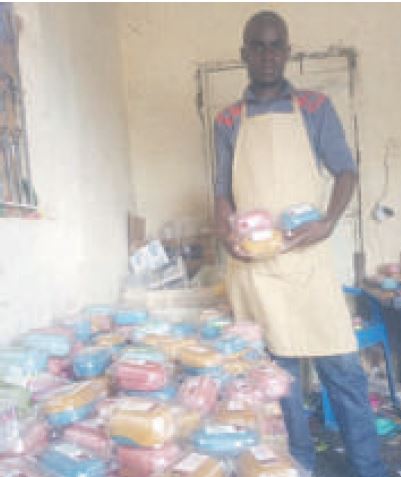×
The Standard e-Paper
Stay Informed, Even Offline

For 29-year-old John Karanja, farm produce has a very different meaning and use and enriches him in ways that shocks many.
Karanja makes soaps, both for washing and cleaning from tomatoes, cucumber, onions, and aloevera, which made him famous.